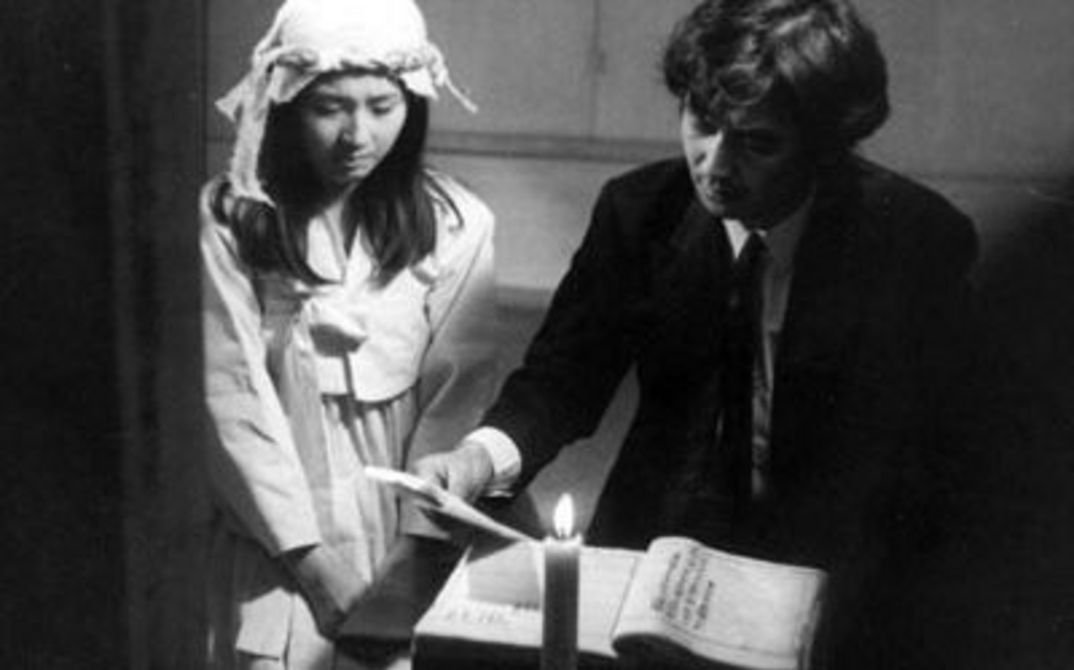About the film (catalogue PDF)
About Im Kwon-Taek (catalogue PDF)
"'The Genealogy' is an examination of the Korean sense of identity during the Japanese occupation. The main character, Sol, fiercely resists changing his Korean surname to a Japanese one, as is dictated by the prevailing policy. To change one's family name was considered an act of treachery in Korean society – the family's genealogy was at stake. Im Kwon-Taek recounts Sol's long resistance from a Japanese official's point of view. In the end Sol agrees to change his children's names for the sake of their future, but he then commits suicide as an apology to his ancestors. The conservatism of Korean society is reflected in the film's images: a man and woman never appear in the same shot and never look each other in the face when speaking. This isolating effect emphasizes both the alienation Koreans felt in their occupied homeland as well as the unmitigated discrimination of women prevailing in Korean tradition. "Gina-Yu Gustavson
"'The Genealogy' is about an old man who refuses to change his family name when this was imposed on the Korean people by the Japanese. My family didn't have to do it because the same name also exists in Japan. Anyhow, one day when I heard on television about the book written by the Japanese writer Kajiyama which deals with this question, my old memories were revived again. My film is one kind of response to the author's view of colonized Korea. His description of Korea was comparable to a sunset with its dying light, whereas my film is full of life and joy, like laughing young girls in the fields in springtime." Im Kwon-Taek
Production: Hwa Chun Trading Company (Seoul)
Screenplay: Han Un-sa
Cinematographer: Lee Seok-ki
Art Direction: Kim Yu-jun
Music: Jeong Min-seob
Cast: Joo Seon-tae, Hah Myung-joong, Han Hye-sok
Format/screen ratio: 35mm, 1.2.35, Color
Running time: 110 min., 24 frames/sec.
Language: Korean
